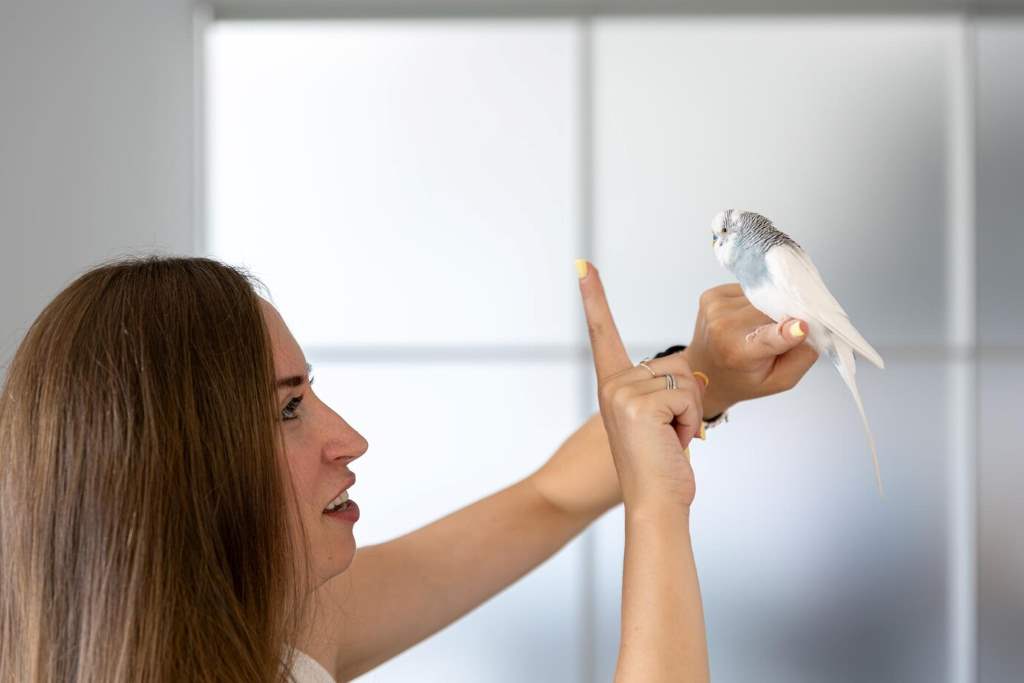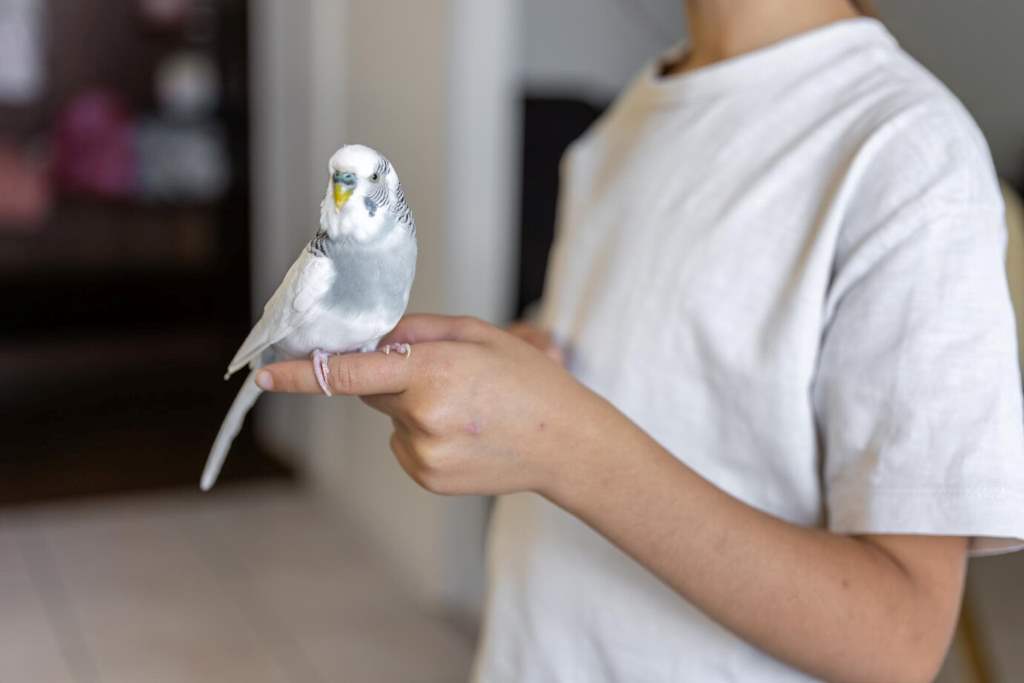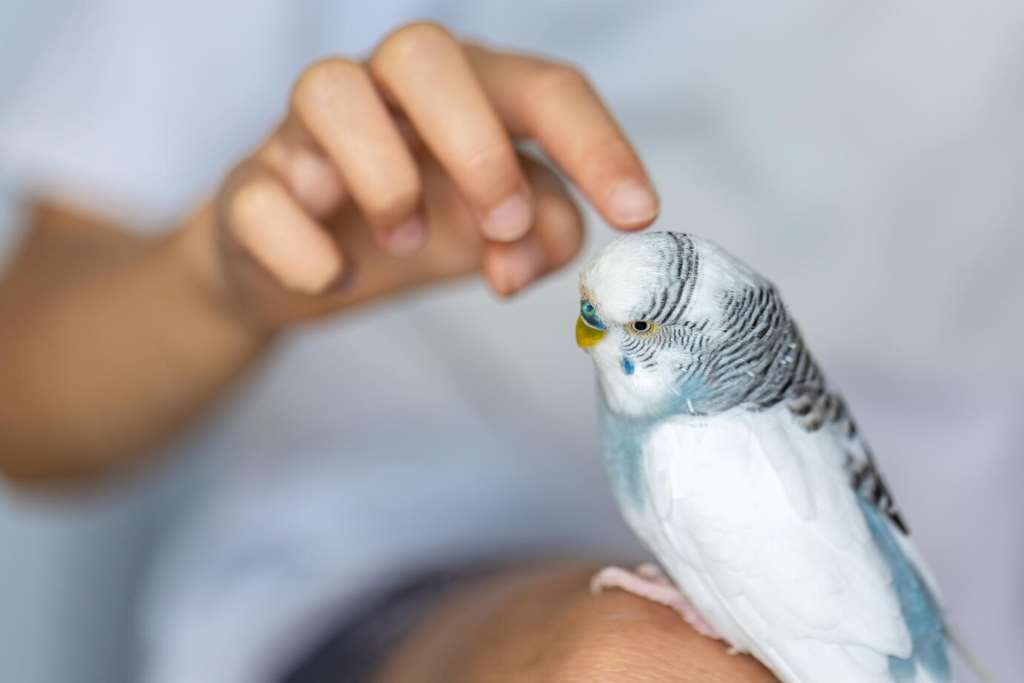
When I first noticed my African Grey, Mango, pulling out his vibrant feathers, my heart sank. His once-lush plumage looked patchy, and his cheerful chirps grew quiet. Feather plucking is a common yet distressing behavior in parrots, affecting up to 10% of captive birds, according to the Journal of Avian Medicine and Surgery. This behavior isn’t just about looks; it signals deeper issues, from stress to health problems. In this post, I’ll share nine lesser-known reasons why parrots pluck their feathers, blending my personal journey with expert insights. By understanding these causes, you can help your feathered friend thrive. Let’s dive into why does my parrot pluck its own feathers and explore actionable solutions.
Table of Contents
Toggle1. Stress: The Silent Culprit
Parrots are sensitive creatures, and stress often triggers feather plucking. Changes like a new home, loud noises, or a shift in routine can overwhelm them. For Mango, moving to a noisier apartment sparked his plucking. Studies from the University of California, Davis, show that parrots experience stress similarly to humans, releasing cortisol that disrupts their well-being. To reduce stress, create a calm environment. Keep their cage in a quiet, stable spot, and maintain a consistent schedule. Offer toys and foraging activities to keep them engaged. If stress persists, consult an avian vet to rule out deeper issues. A soothing routine helped Mango regain his confidence, and it can work for your parrot too.
2. Boredom: A Mind Left Idle
Parrots are intelligent, needing mental stimulation like a toddler. Without it, boredom sets in, leading to feather plucking. The Association of Avian Veterinarians notes that 15% of plucking cases tie to insufficient enrichment. Mango started plucking when I left him alone for long hours. To combat boredom, I introduced puzzle toys and rotated them weekly. You can try shreddable toys, mirrors, or treat-dispensing gadgets. Spend at least an hour daily interacting with your parrot through talking or training. These activities keep their minds sharp and feathers intact. A stimulated parrot is a happy one, so get creative with their playtime.
3. Poor Diet: Nutrition Matters
A parrot’s diet directly affects its feather health. Deficiencies in vitamins A, D, or omega-3 fatty acids can cause skin irritation, prompting plucking. According to a 2023 study in Veterinary Record, 20% of plucking parrots had nutritional imbalances. Mango’s plucking eased after I switched him to a balanced diet of pellets, fresh veggies, and fruits. Avoid seed-only diets, as they lack essential nutrients. Offer leafy greens, carrots, and occasional nuts. Consult an avian vet for a tailored diet plan. Proper nutrition not only stops plucking but also boosts your parrot’s vibrancy. Feed them well, and their feathers will thank you.
4. Skin Infections: Hidden Irritants
Skin infections, like bacterial or fungal issues, can make parrots pluck to relieve itching. The Merck Veterinary Manual reports that 12% of feather-plucking cases stem from dermatological problems. Mango once had a fungal infection that caused frantic plucking. A vet visit and medicated cream solved it. Check your parrot’s skin for redness or scaling. Maintain cage hygiene to prevent infections, and use vet-approved shampoos for baths. If you suspect an infection, seek professional help promptly. Addressing skin issues early can save your parrot from discomfort and restore their plumage.
5. Hormonal Changes: Nature’s Influence
Hormonal surges, especially during breeding season, can trigger plucking. Parrots may over-preen or pluck to cope with these urges. A study by the Royal Veterinary College found that 8% of plucking cases relate to hormonal shifts. Mango’s plucking spiked in spring, likely due to hormonal changes. To manage this, reduce triggers like excessive petting or nest-like materials. Keep daylight hours consistent with a sleep schedule of 10–12 hours. If hormonal plucking persists, an avian vet may suggest behavioral therapy. Understanding these natural cycles helped me support Mango, and it can guide you too.
6. Allergies: Environmental Triggers
Allergies to dust, pollen, or cage materials can irritate a parrot’s skin, leading to plucking. The Avian Welfare Coalition highlights that 10% of plucking cases involve environmental allergies. Mango’s plucking worsened near a dusty bookshelf. Moving his cage and using an air purifier helped. Identify potential allergens by cleaning the cage regularly and avoiding scented products. Use hypoallergenic bedding and monitor for sneezing or scratching. An avian vet can perform allergy tests if symptoms persist. By creating a cleaner environment, you can ease your parrot’s discomfort and reduce plucking. Explore Why is My Cat Throwing Up?
7. Medical Issues: Beyond the Surface
Underlying medical conditions, like liver disease or parasites, can cause plucking. The Journal of Exotic Pet Medicine states that 18% of plucking parrots have systemic illnesses. Mango’s bloodwork once revealed a vitamin deficiency mimicking a larger issue. Regular vet checkups are crucial to catch these problems early. Watch for symptoms like lethargy or weight loss alongside plucking. Diagnostic tests, such as blood panels or feather biopsies, can pinpoint causes. Treating the root issue often stops plucking. Stay proactive with your parrot’s health to ensure they live a long, feather-filled life.
8. Social Isolation: The Need for Connection
Parrots are flock animals, craving social bonds. Isolation can lead to depression and plucking. A 2022 study in Applied Animal Behaviour Science found that 14% of plucking cases link to loneliness. Mango’s plucking reduced when I spent more time talking and playing with him. Ensure daily interaction with your parrot, even if it’s singing or whistling together. If you’re away often, consider a companion parrot, but introduce them gradually. Social engagement keeps parrots emotionally healthy, preventing destructive behaviors like plucking. Your presence makes a world of difference.
9. Improper Cage Setup: A Space That Stresses
A cramped or poorly designed cage can stress parrots, prompting plucking. The Humane Society notes that 9% of plucking cases tie to inadequate housing. Mango’s old cage was too small, contributing to his distress. Upgrade to a spacious cage with varied perches and safe toys. Place it away from drafts or direct sunlight. Ensure fresh water and clean bedding daily. A comfortable cage is a sanctuary for your parrot, reducing stress and plucking. Invest in their space, and they’ll reward you with vibrant feathers.
Tips to Stop Feather Plucking
Helping your parrot requires patience and observation. Here are practical steps to address plucking:
- Visit an avian vet to rule out medical causes.
- Enrich their environment with toys, foraging activities, and daily interaction.
- Optimize their diet with nutrient-rich foods like pellets and veggies.
- Maintain cage hygiene to prevent infections and allergies.
- Monitor stress triggers and create a calm, consistent routine.
Start with one change, like adding a new toy, and track progress. If plucking persists, seek professional guidance. For more tips, check the Association of Avian Veterinarians.
Conclusion
Watching Mango pluck his feathers was heartbreaking, but understanding why does my parrot pluck its own feathers. From stress to medical issues, the nine causes we’ve explored show how complex this behavior is. By addressing these triggers with care, you can help your parrot regain their sparkle. Mango’s feathers are fuller now, and his chirps fill my home again. Take the first step today—observe your parrot, consult a vet, and enrich their world. Share your story in the comments or pass this article to a fellow parrot owner. Together, we can help our feathered friends soar.
FAQs
Why does my parrot only pluck at night?
Nighttime plucking often ties to stress, boredom, or hormonal changes. Ensure a dark, quiet sleep environment and consult a vet for underlying issues.
Can feather plucking be stopped completely?
Yes, with proper care, many parrots stop plucking. Address medical, environmental, and emotional causes, and be patient with changes.
How do I know if my parrot’s plucking is medical?
Look for symptoms like lethargy, weight loss, or skin changes. A vet can run tests to confirm medical issues causing plucking.
Are some parrot species more prone to plucking?
African Greys and Cockatoos are more susceptible due to their high intelligence and social needs, but any species can pluck under stress.
Should I use anti-plucking sprays?
Anti-plucking sprays may deter the behavior but don’t address root causes. Consult a vet before using them to ensure they’re safe.


